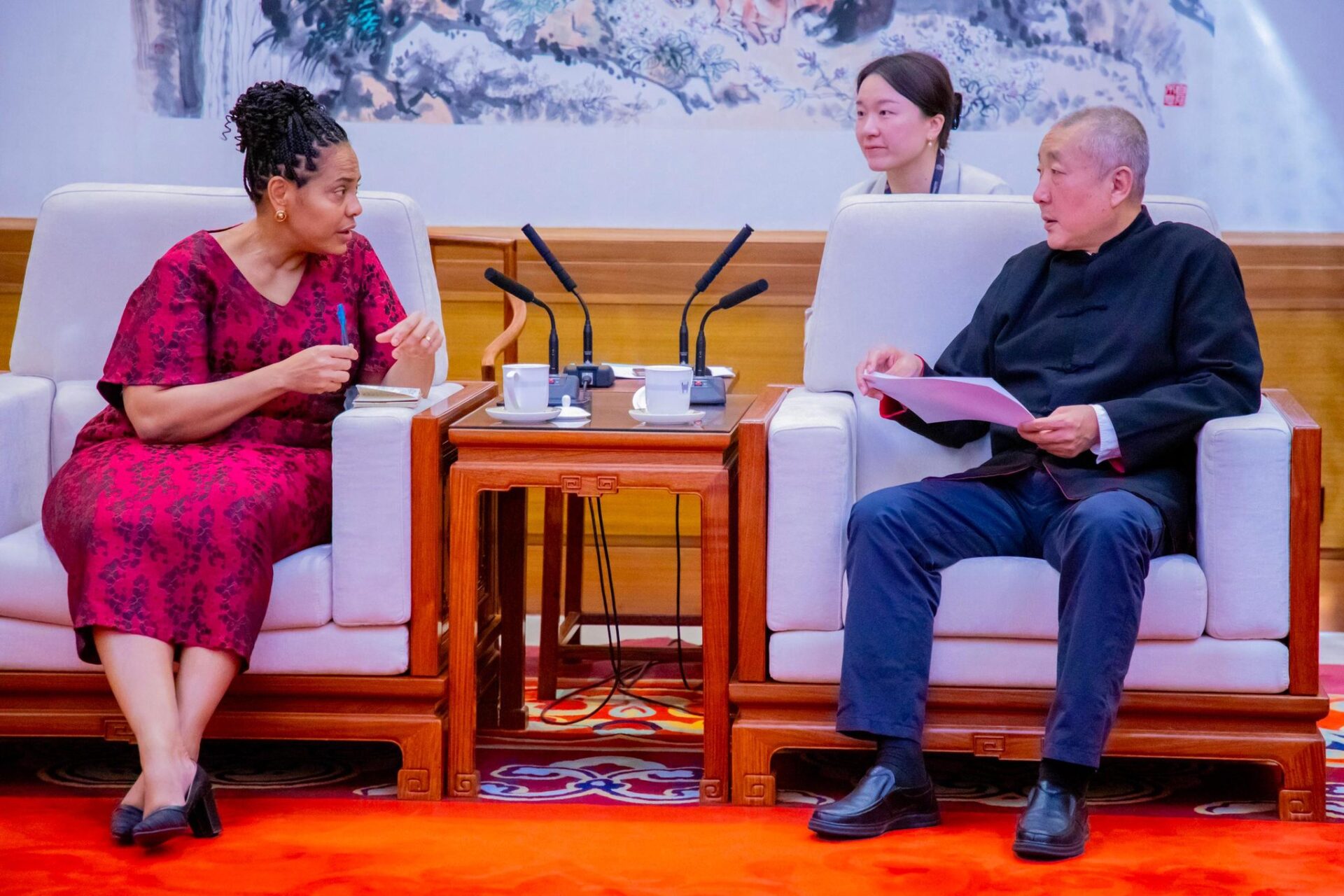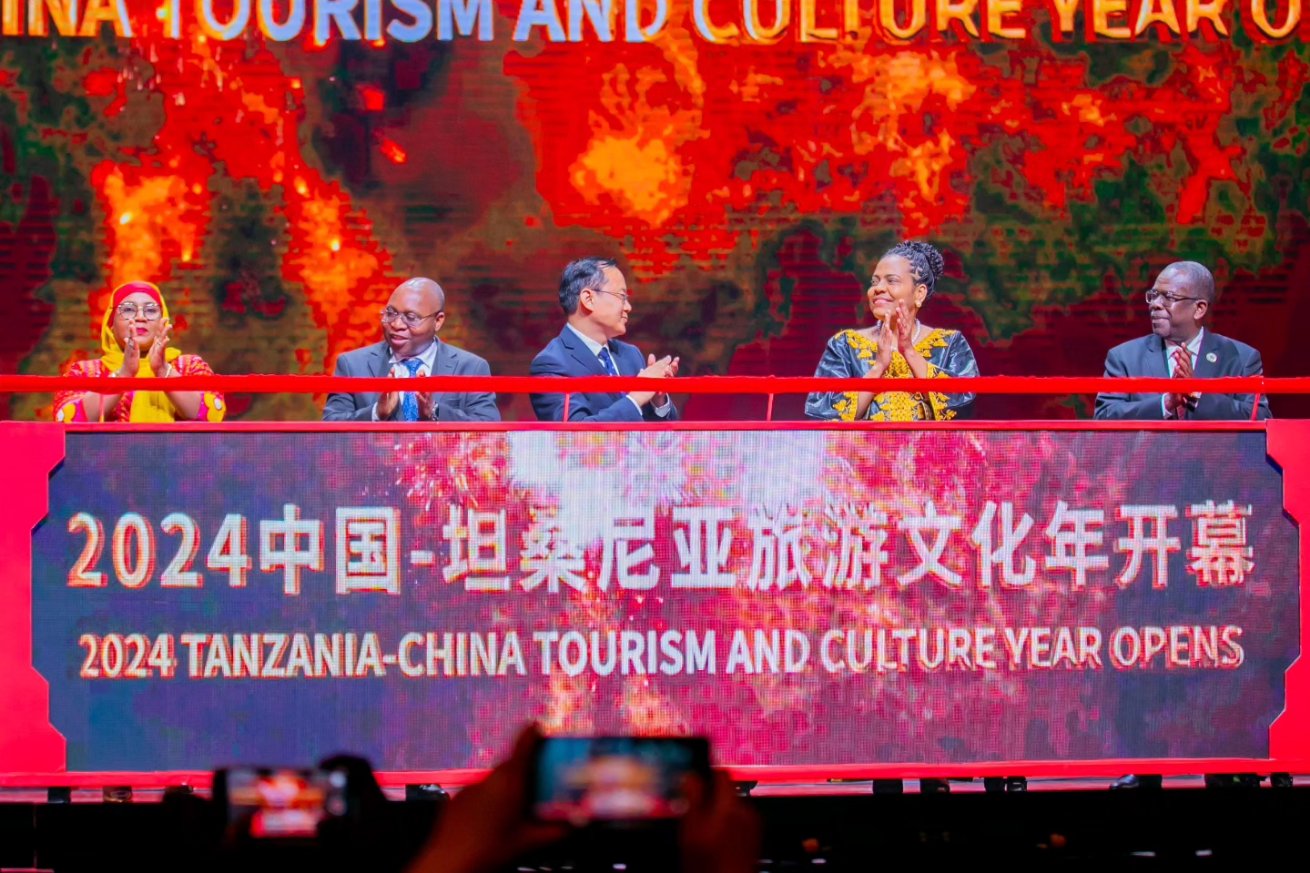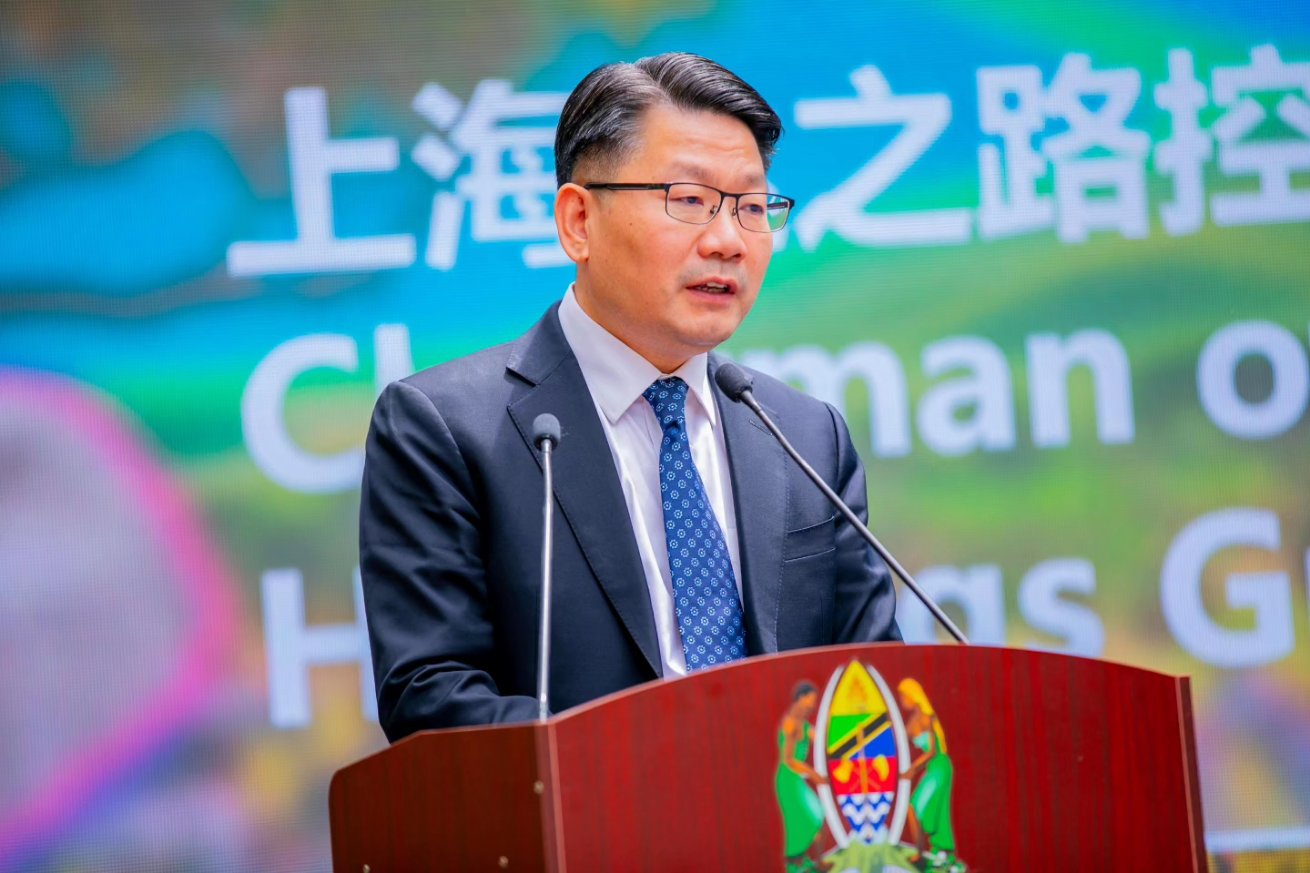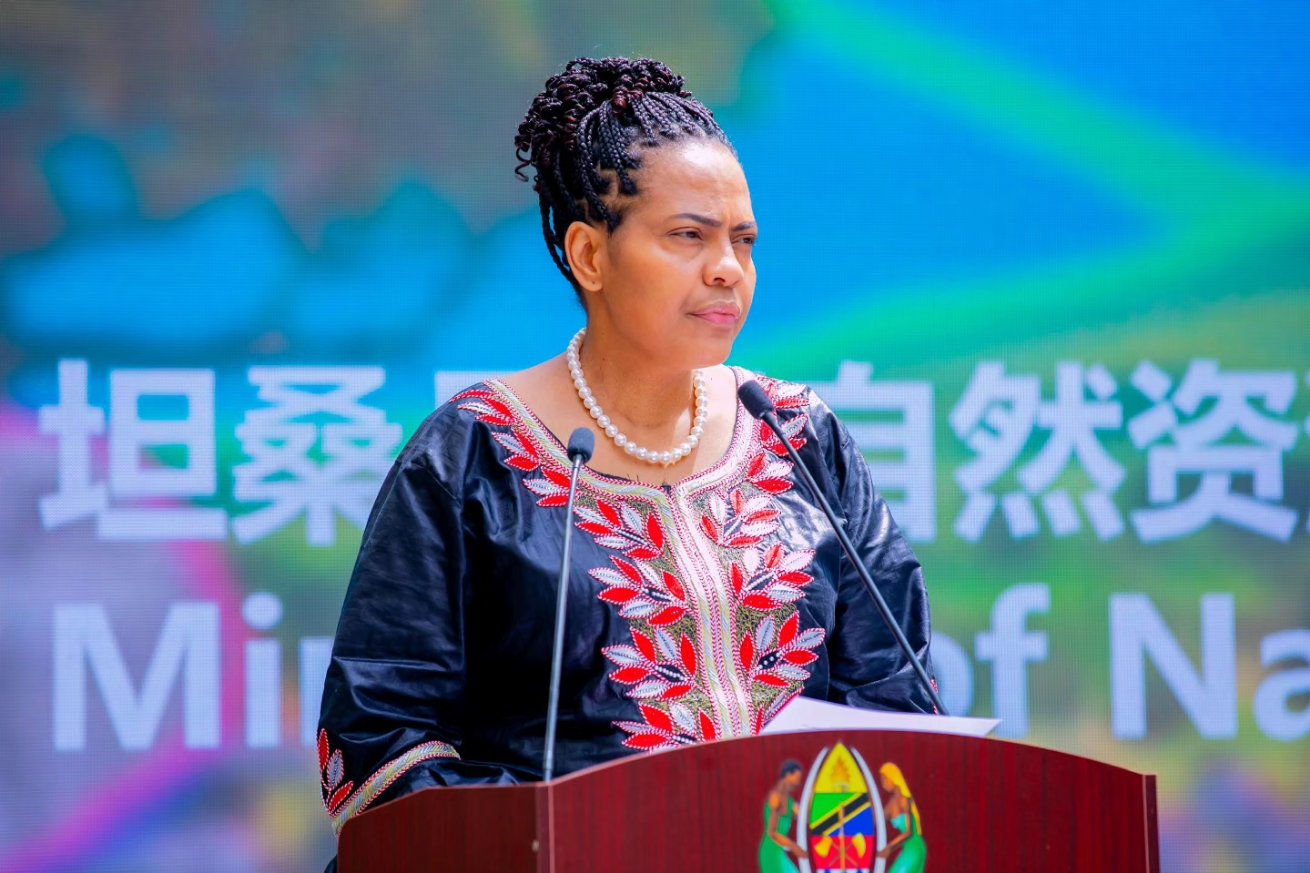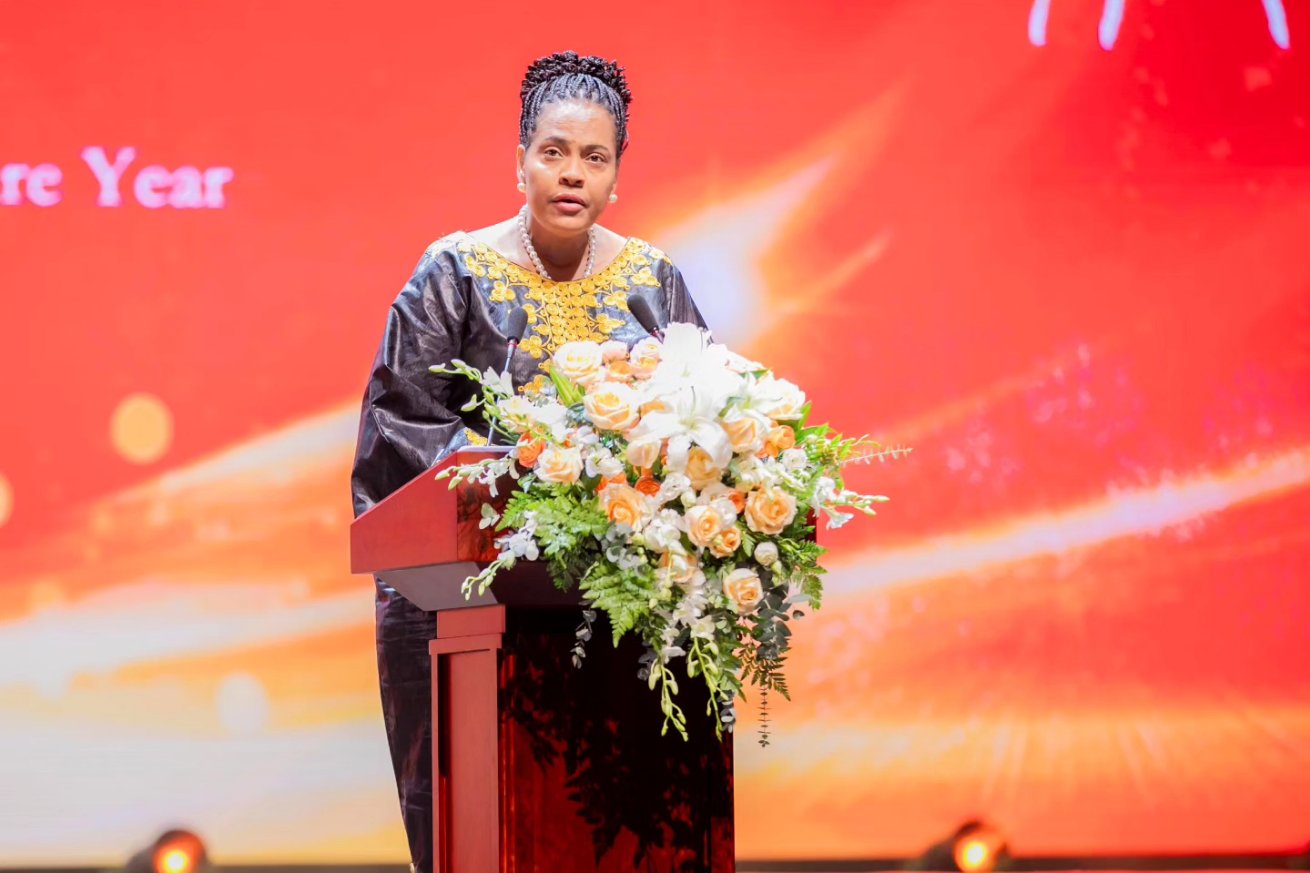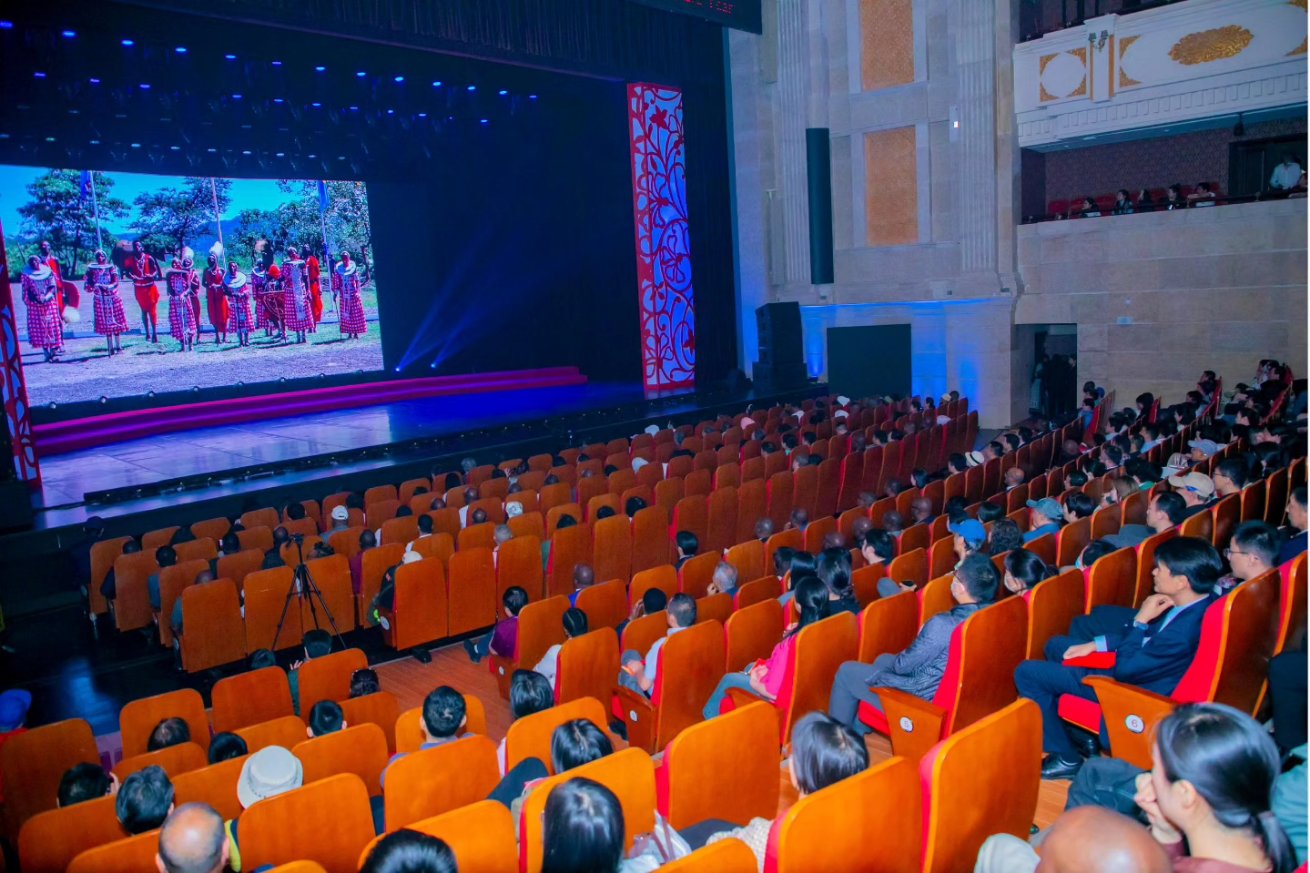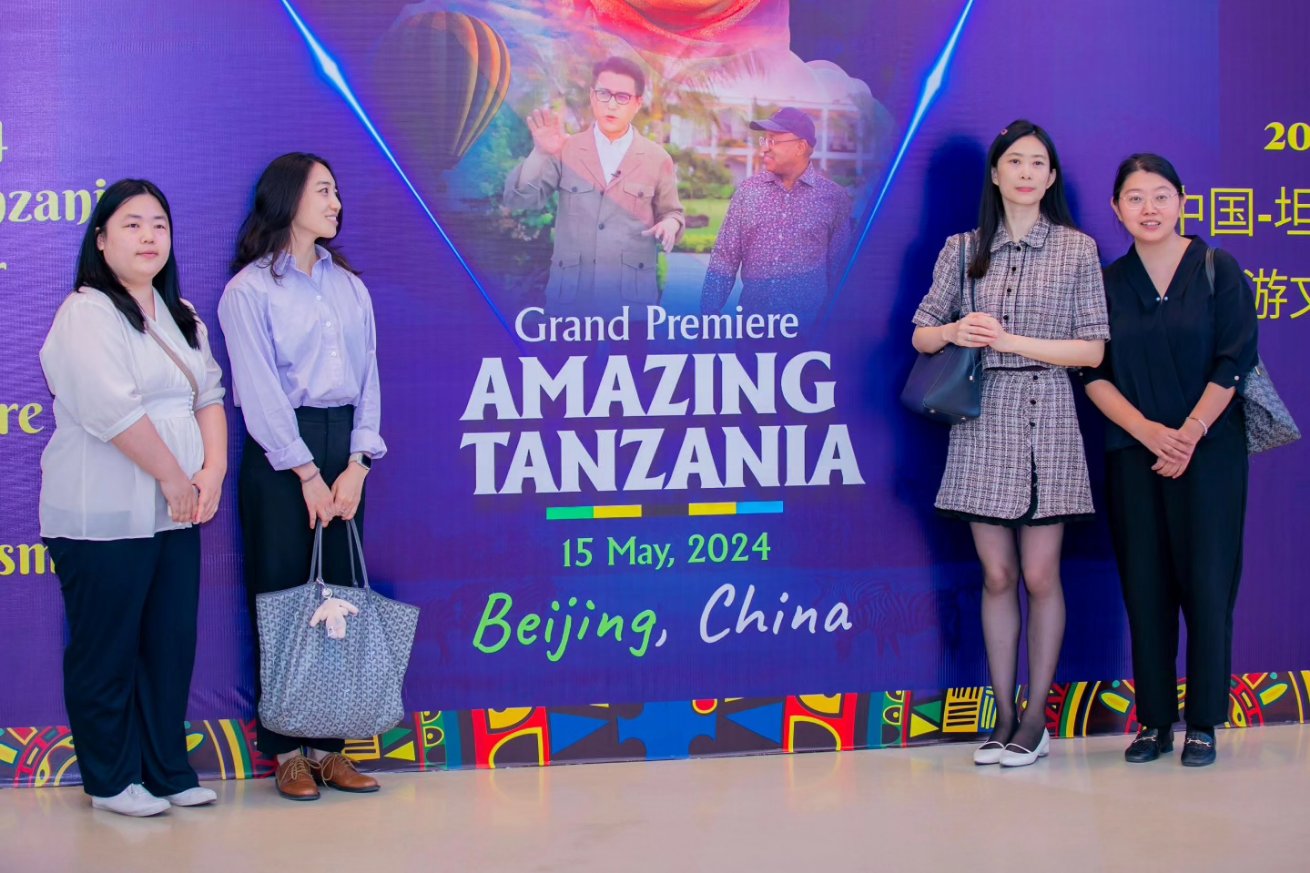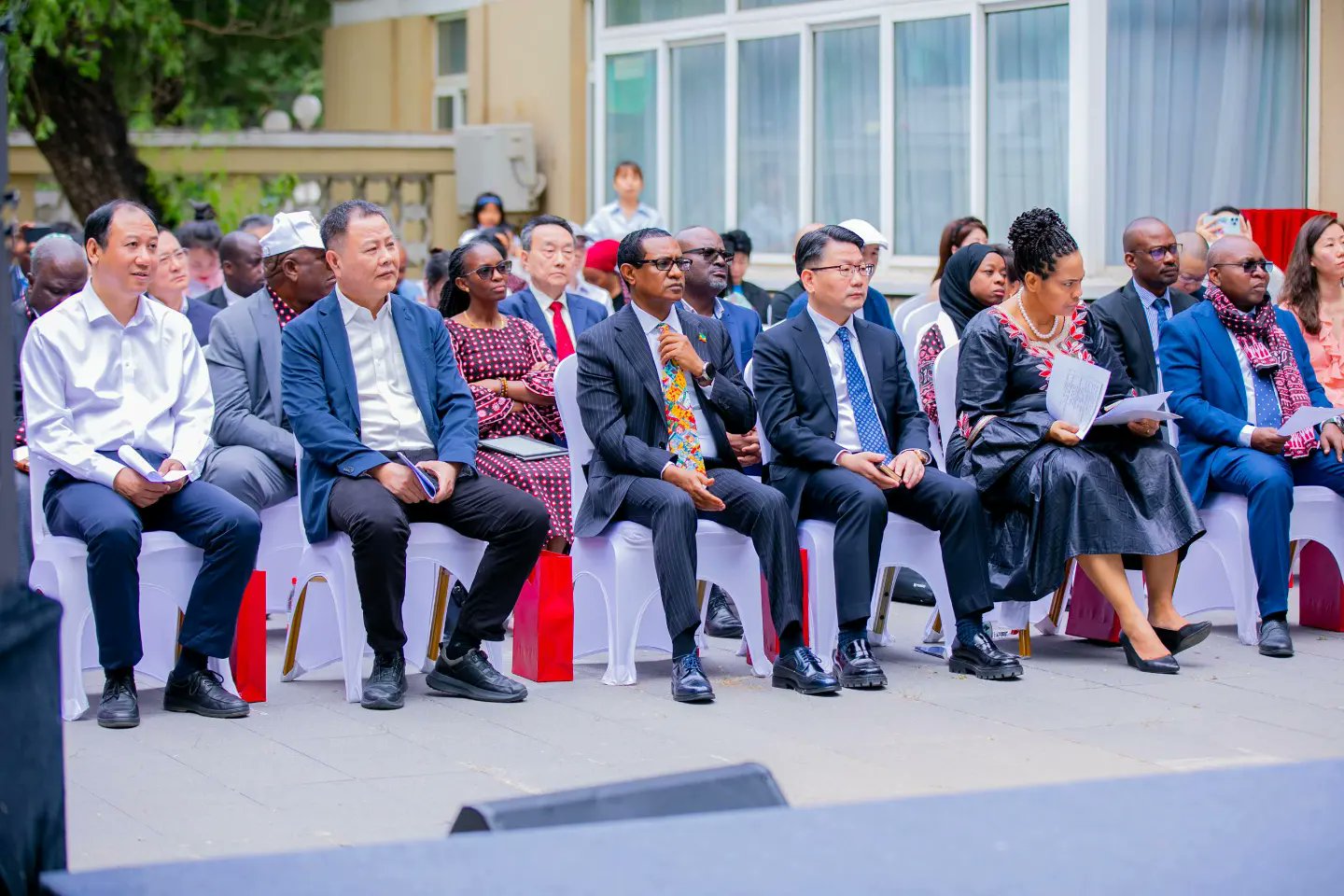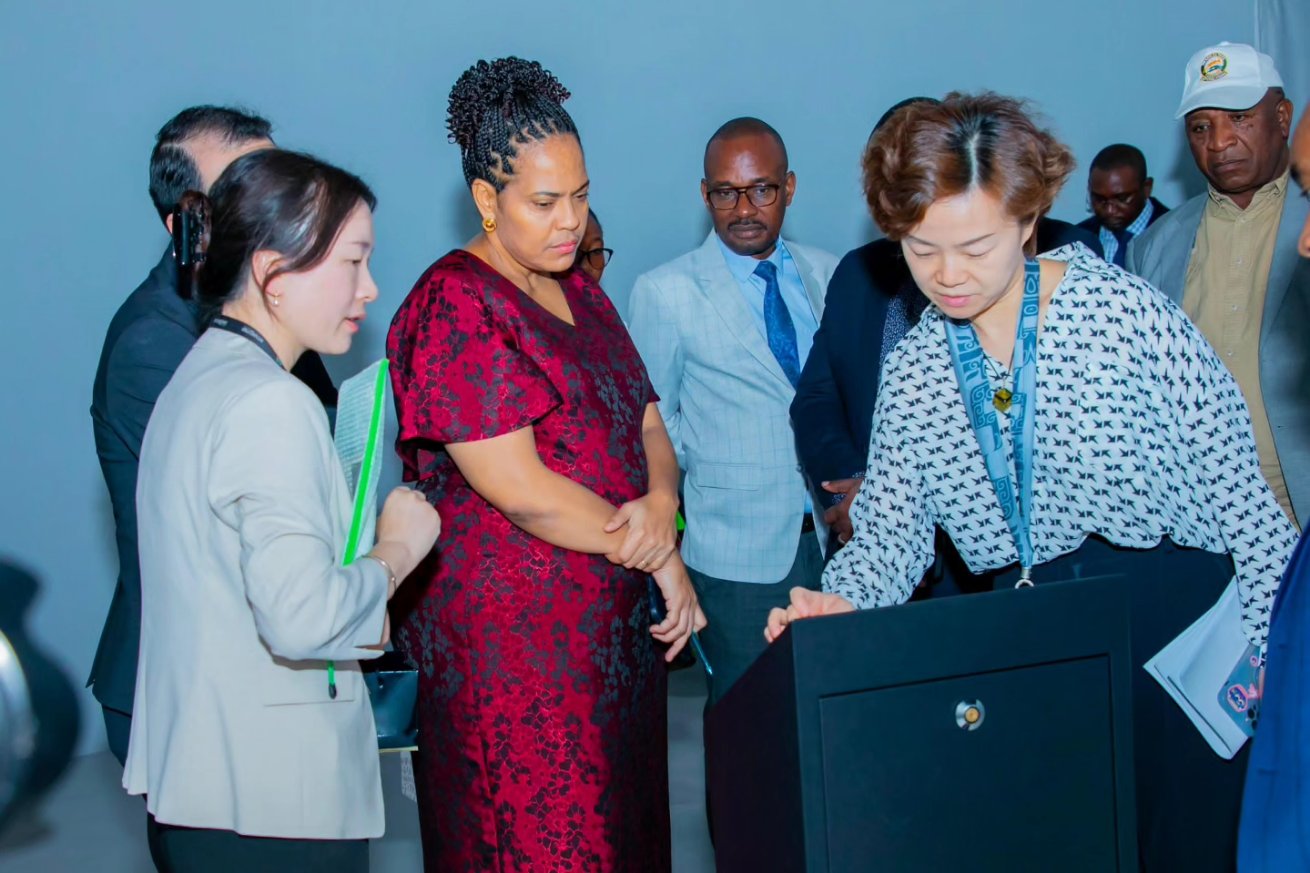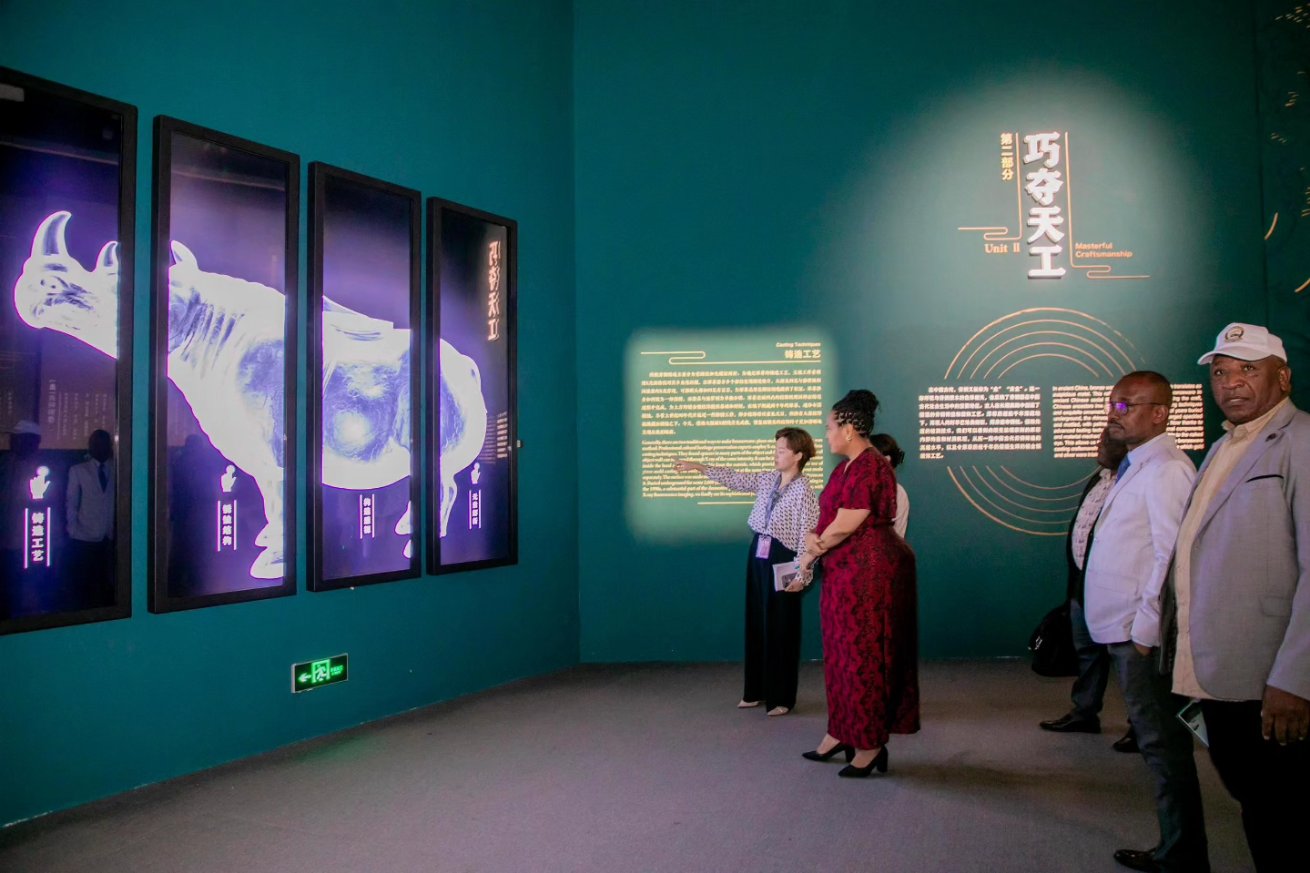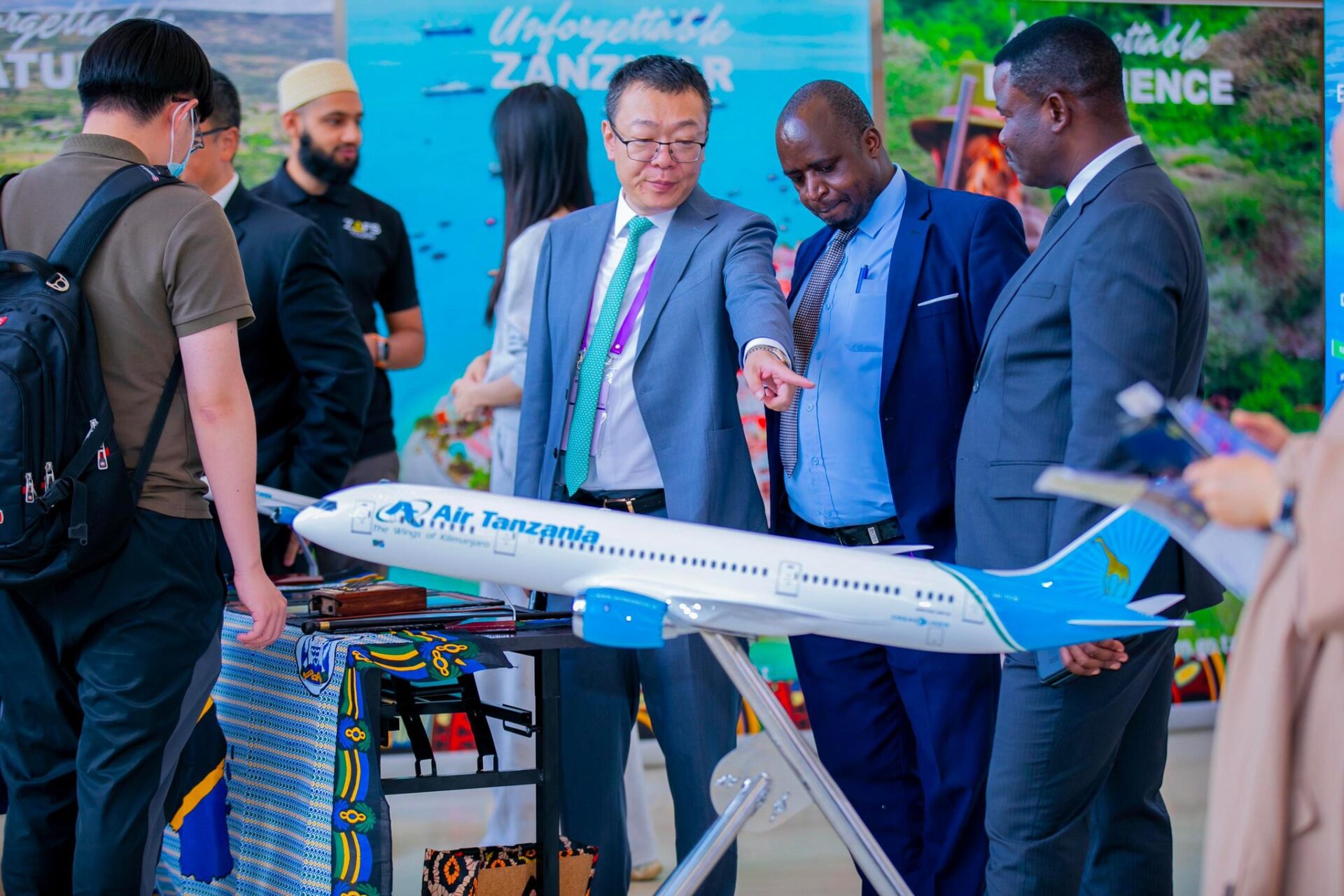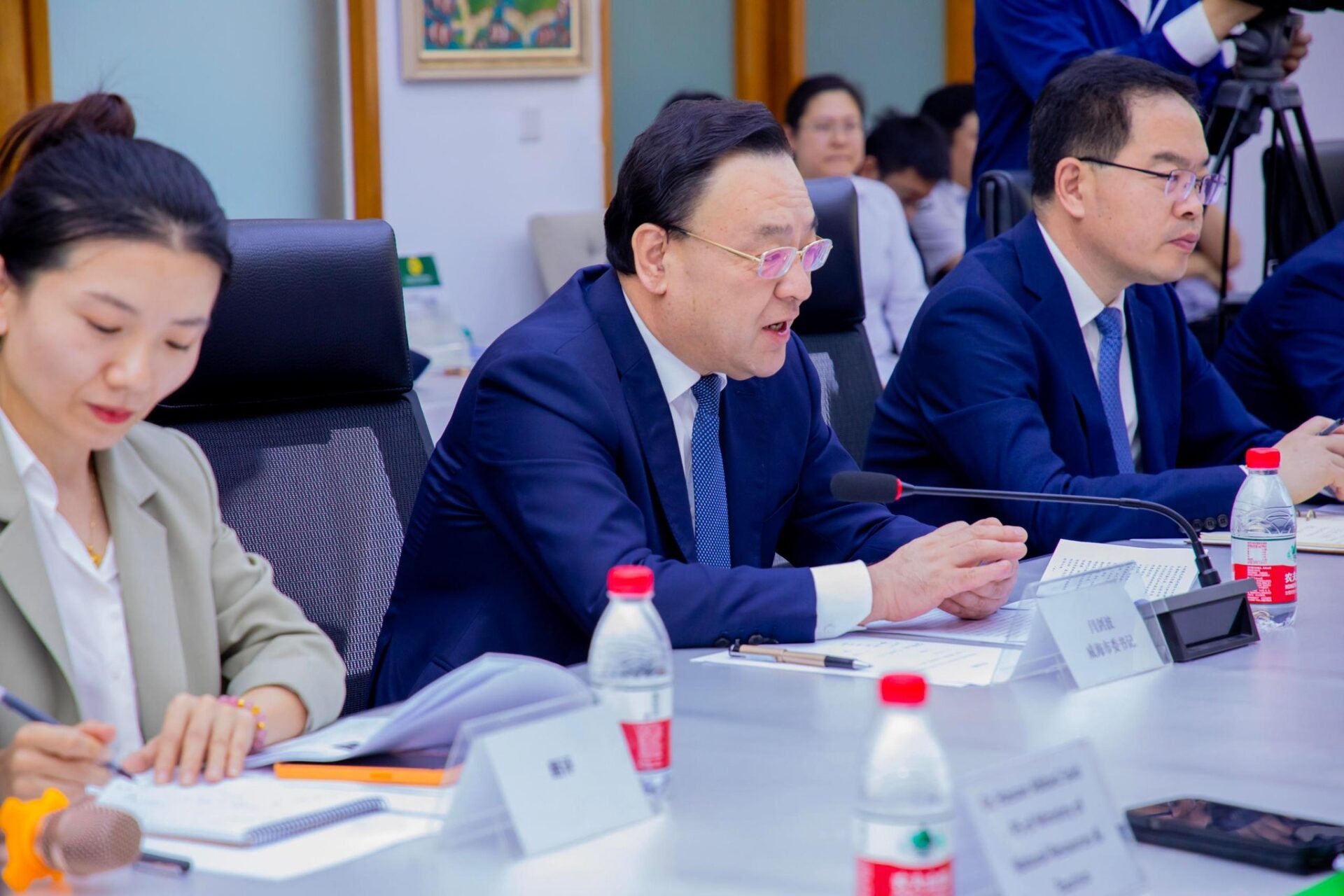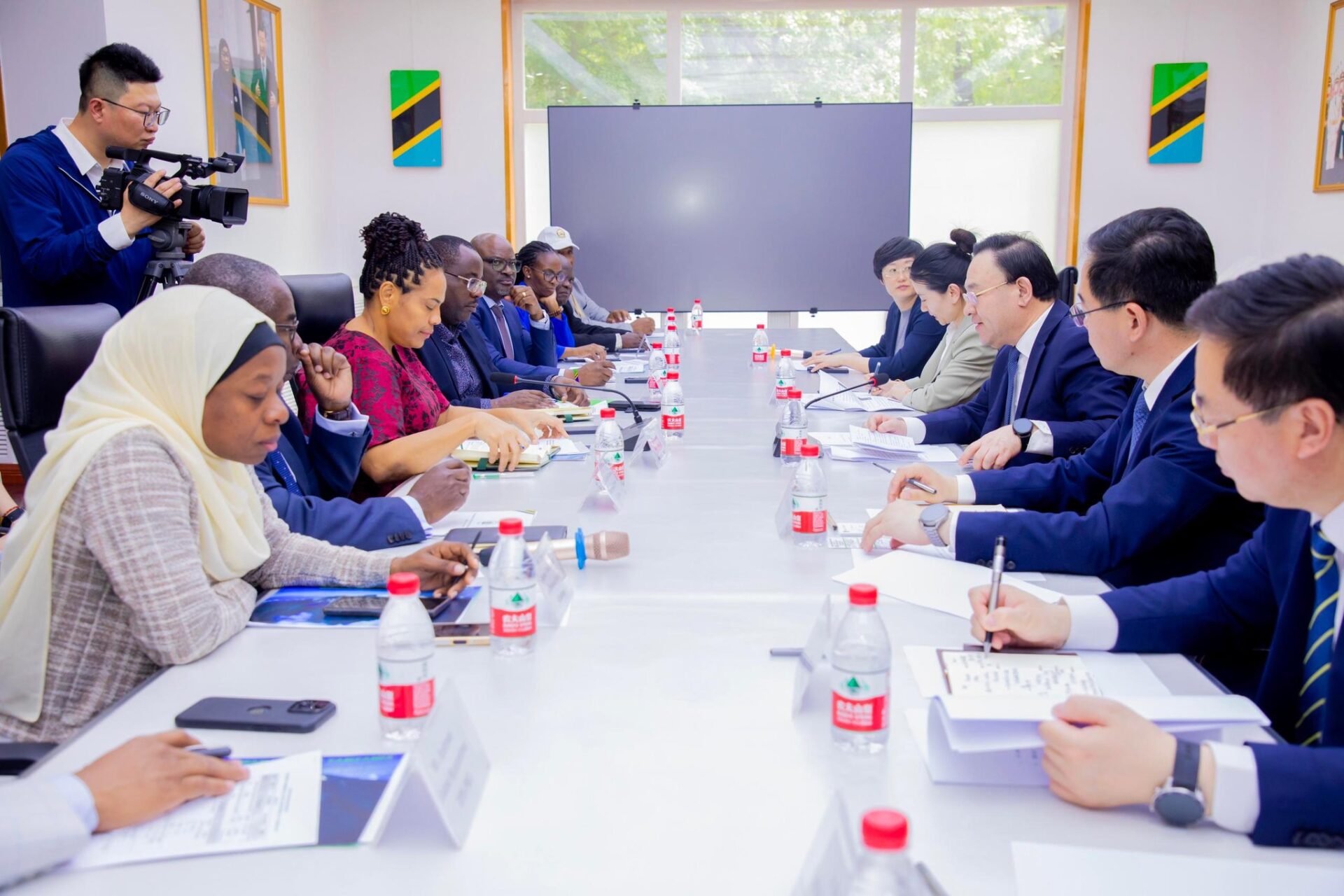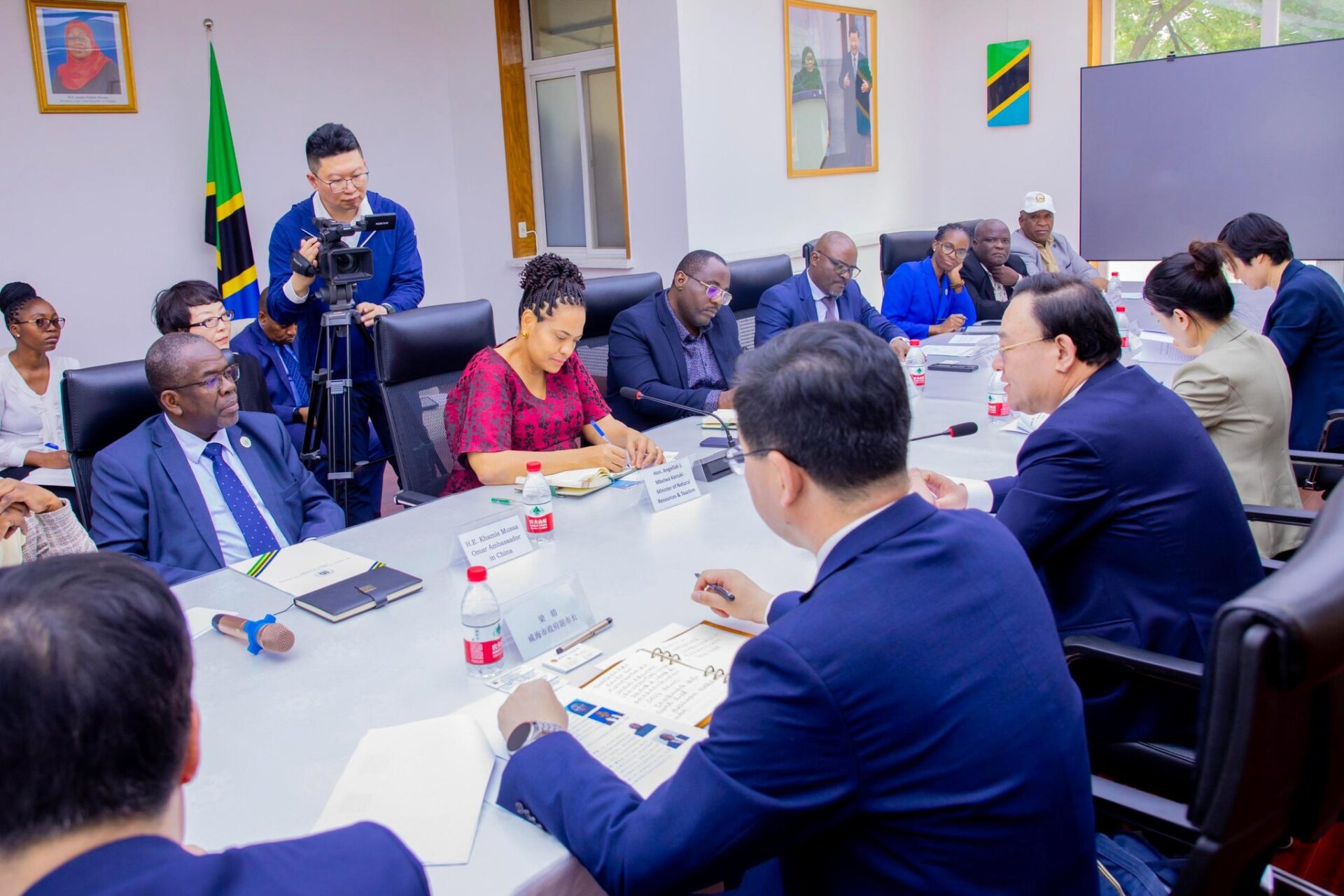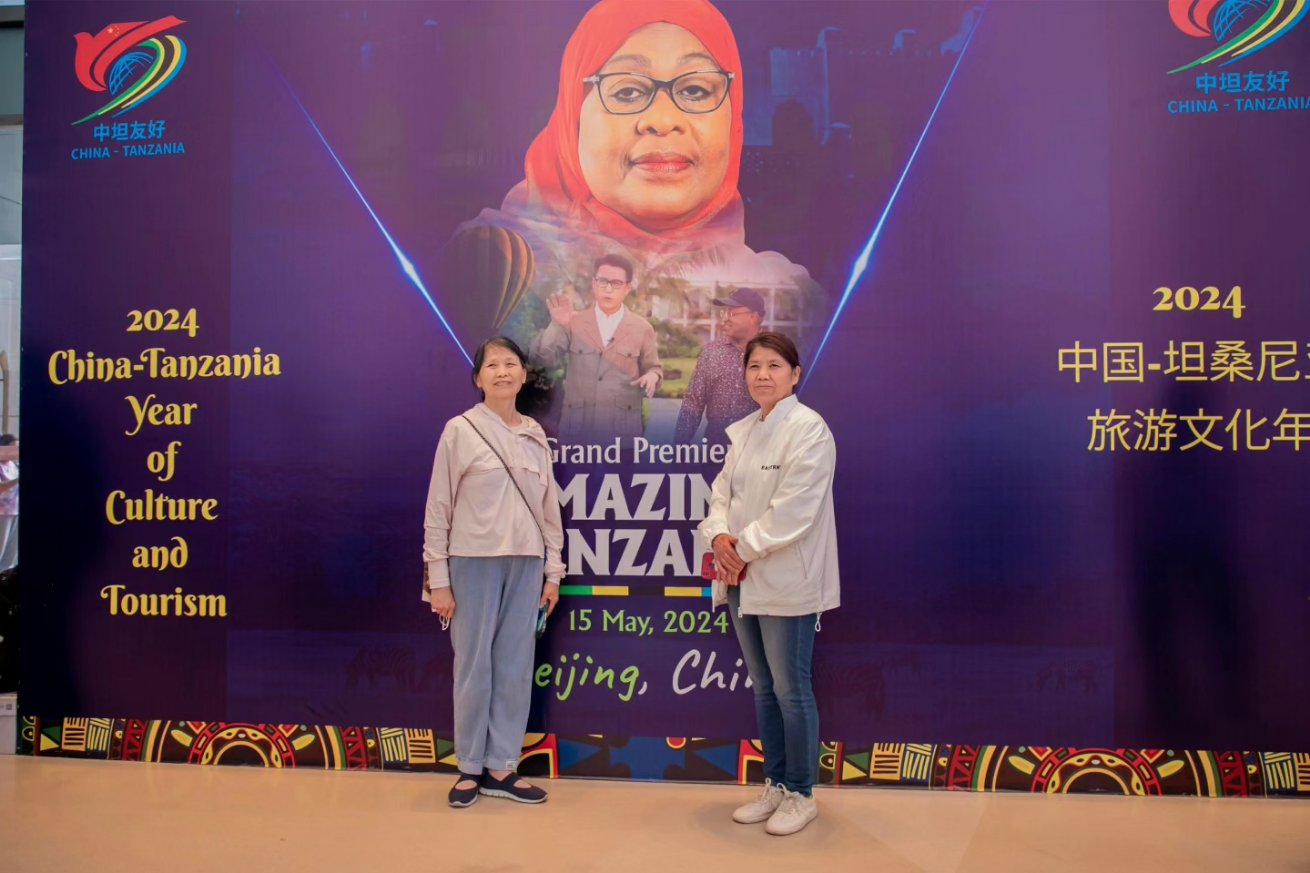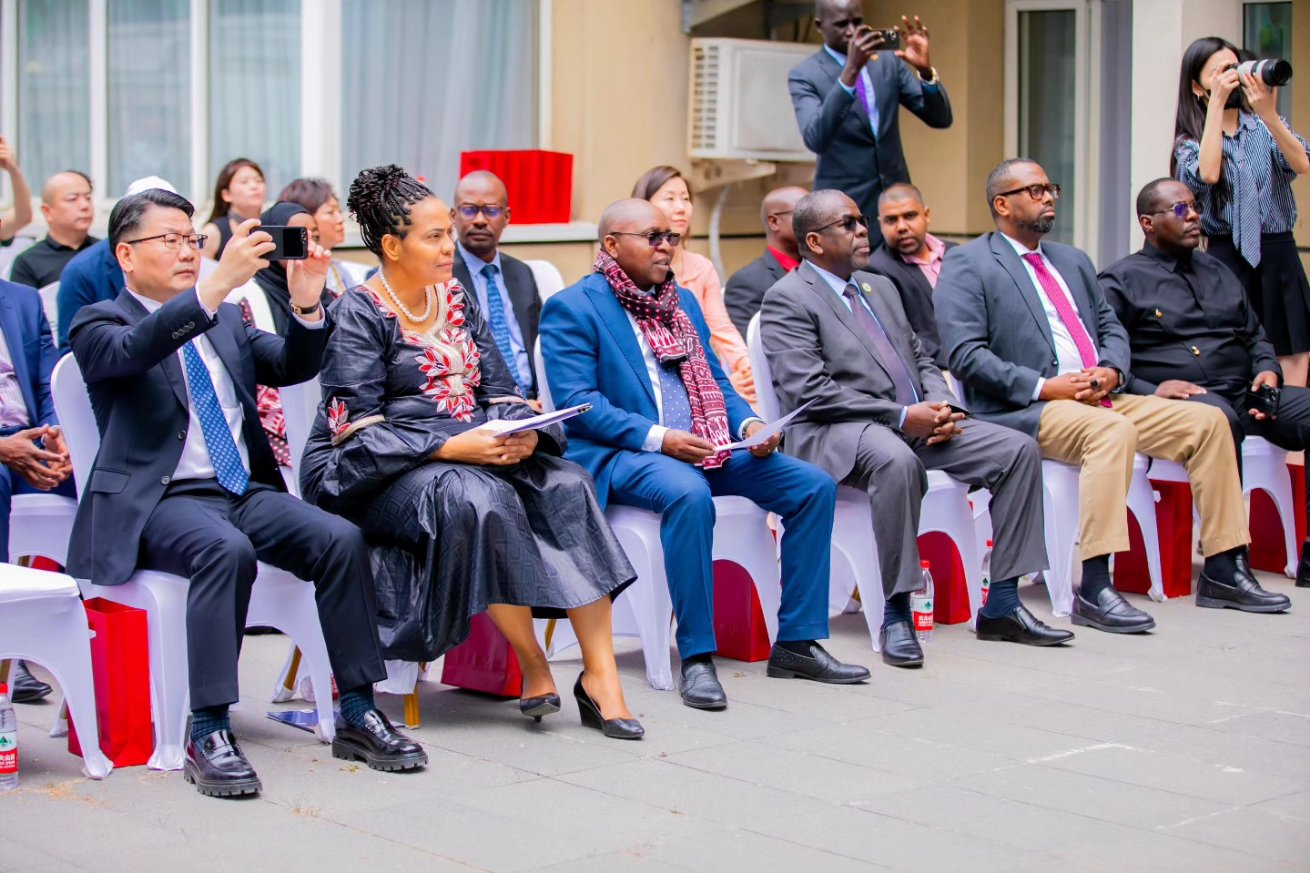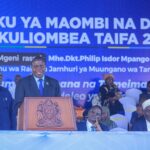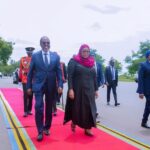Touchroad Holding Group: Pioneering Aerial Bridges Between Tanzania and China
In an era where the fabric of international relations and economic partnerships is intricately woven into the tapestry of global development, Touchroad Holding Group in China is a leading light in intercontinental connectivity. This organisation is dedicated to strengthening the bonds between the dynamic continent of Africa and the economic powerhouse that is China. As a shining example of this dedication, Touchroad is poised to launch a ground-breaking initiative: direct flights connecting Tanzania and China, commencing in June of this year.
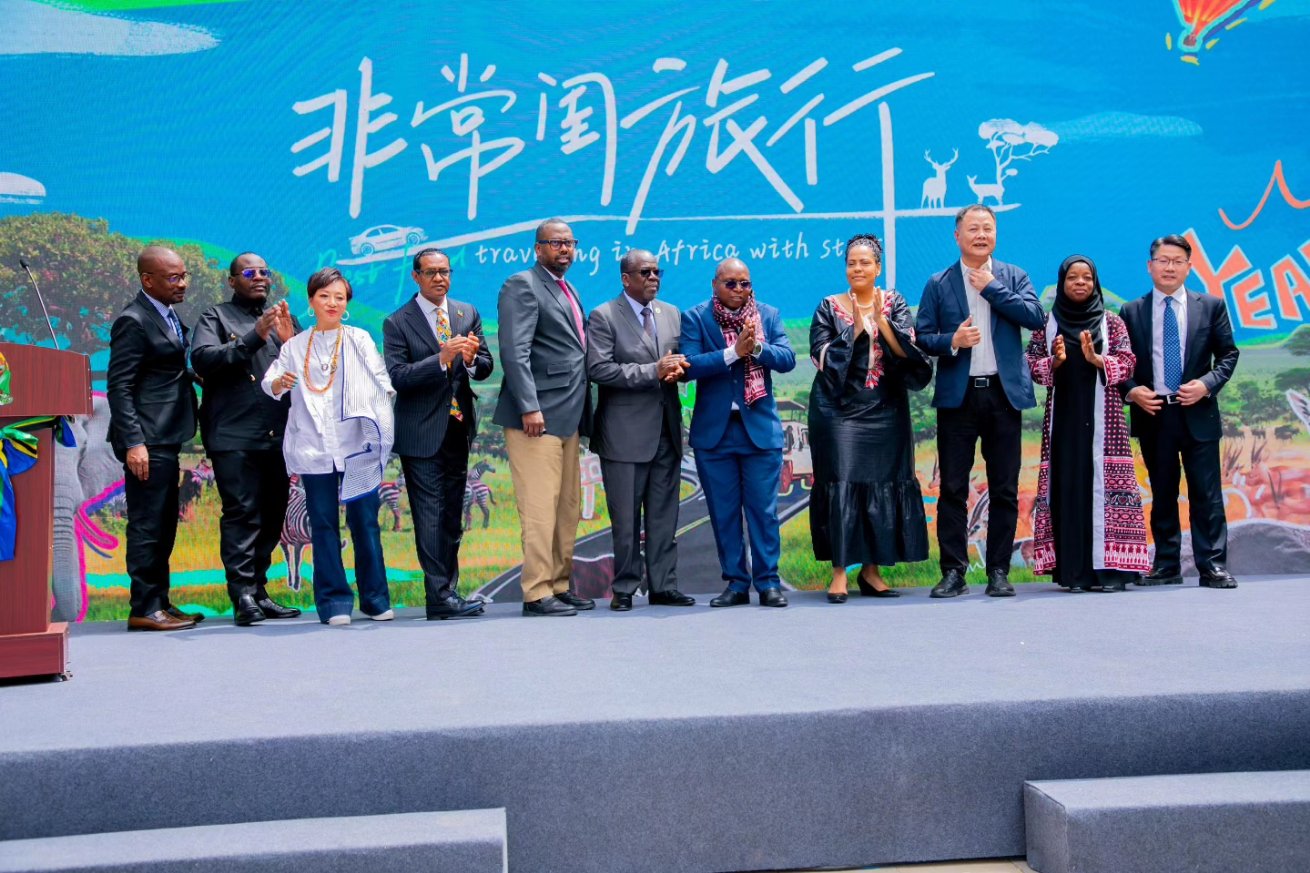
This article examines the various aspects of this venture, including its implications for business, culture, and the enduring friendship between these two regions. With a commitment to clarity, semantic precision, and high-quality content, we embark on a journey to understand how Touchroad’s latest endeavour is much more than a mere business operation. It is a celebration of unity, a cultural confluence, and a testament to the power of international cooperation.
The Genesis of Touchroad’s Vision
Touchroad Holding Group’s vision was born from the recognition of the untapped potential that lies in fostering closer ties between China and Africa. The group’s founder, He Liehui, has been a pioneer in identifying the mutual benefits that can be derived from such partnerships. Mr. He’s leadership has made Touchroad a paragon of innovation and progress in the realm of international collaboration.
The Economic Impetus
The inauguration of flights between Tanzania and China is set to create a multitude of economic opportunities. For Tanzania, this will result in a significant increase in tourists, investors and business professionals keen to explore the country’s offerings. For China, it represents a gateway to the rich resources and vibrant markets of Africa. The mutually beneficial relationship will drive a surge in trade, tourism and investment, propelling both nations towards greater economic prosperity.
Cultural Exchange: Beyond Business
However, the core objective of Touchroad’s initiative extends beyond the scope of traditional commerce. These flights are designed to facilitate cultural exchange, enabling individuals from diverse backgrounds to share knowledge, traditions, and experiences.
The exchange is expected to enrich both societies, fostering mutual understanding and respect. It serves as a conduit for cultural exchange, enabling Tanzanians and Chinese to gain insight into one another’s cultures, learn from one another, and foster long-lasting relationships.
A Celebration of Friendship
The relationship between China and Tanzania is long-standing and historically significant, with ties dating back to the era of the Tanganyika-Zanzibar union. The inauguration of these flights represents a contemporary affirmation of the enduring bond between our two countries. This demonstrates the continued commitment of both countries to work together to support each other’s growth and development.
The Strategic Significance
Strategically, the new air link represents a significant shift in the competitive landscape. The new air link positions Tanzania as a central hub in Africa for Chinese travellers and businesses, with the potential to transform the nation into a focal point for Chinese investment in the region. This strategic move also aligns with China’s Belt and Road Initiative, which aims to enhance regional connectivity and create new trade corridors.
The Environmental and Social Considerations
Touchroad is also aware of the environmental and social implications of increased air travel. The group is dedicated to implementing sustainable practices to minimise the ecological footprint of the new flights. Furthermore, the company aims to ensure that the economic benefits of this venture are equitably distributed, contributing to the social upliftment of local communities in Tanzania.
The Future Trajectory
As we look to the future, the potential of this initiative is limitless. The flights represent just the first step in a broader strategy to deepen China-Africa relations. Touchroad’s vision is of a future where this aerial bridge will facilitate not only the exchange of goods and services but also ideas, talent, and innovation.
Six Decades of Sino-Tanzanian Diplomacy: A Legacy of Partnership and Prospects for the Future
The United Republic of Tanzania and the People’s Republic of China have established a robust diplomatic relationship that has endured for over six decades. As we enter the Year of Tourism and Culture, it is an opportune moment to reflect on the enduring friendship between these two nations, to celebrate their shared achievements, and to anticipate the potential that the future holds for this bilateral partnership.
This article provides an in-depth analysis of the long-standing Sino-Tanzanian relationship, examining the various forms of collaboration that have emerged over time and exploring the potential opportunities that lie ahead for both countries.
Historical Context:
The origins of Sino-Tanzanian diplomacy can be traced back to the early 1960s, a period marked by Tanzania’s pursuit of independence and China’s emergence as a supporter of liberation movements across Africa. The formal establishment of diplomatic ties in 1964 laid the foundation for a relationship based on mutual respect, non-interference, and shared development goals. Over the years, this relationship has been characterised by high-level exchanges, economic partnerships, and cultural exchanges that have deepened the understanding and friendship between the peoples of Tanzania and China.
Economic Cooperation:
One of the most visible aspects of the Sino-Tanzanian relationship is the economic cooperation that has led to tangible benefits for both nations. China has played a pivotal role in the construction of major infrastructure projects in Tanzania, including the iconic Tanzania-Zambia Railway (TAZARA), which has become a symbol of Chinese support for African development. The partnership has expanded to encompass trade, investment, and technology transfer. China has emerged as one of Tanzania’s largest trading partners and investors.
Cultural and Educational Exchanges:
The cultural dimension of the Sino-Tanzanian relationship has been marked by a vibrant exchange of art, literature, and education. The establishment of Confucius Institutes in Tanzania has facilitated the learning of the Chinese language and culture, while Tanzanian students have increasingly pursued higher education opportunities in China.
Such exchanges have led to a deeper mutual understanding and appreciation of each nation’s heritage and contemporary society.
Challenges and Opportunities:
As with any long-standing relationship, the Sino-Tanzanian partnership has faced its share of challenges. Topics such as trade imbalances, concerns over debt sustainability, and the need for technology transfer have been at the forefront of discussions. However, these challenges also provide an opportunity for both countries to engage in constructive dialogue, refine their cooperation, and ensure that their partnership evolves in a manner that is equitable and sustainable.
The Future of Sino-Tanzanian Diplomacy:
As we look to the future, Sino-Tanzanian diplomacy is poised to enter a new era of innovation and collaboration. The Year of Tourism and Culture provides an opportunity for both nations to explore new avenues for cooperation, particularly in the realms of tourism, environmental conservation, and the digital economy.
The potential for joint ventures in renewable energy, wildlife protection, and cultural tourism offers the prospect of mutual benefits and contributes to the global agenda of sustainable development.
“Amazing Tanzania”: A Cinematic Masterpiece to Enchant Chinese Travelers
In the heart of East Africa, where the Serengeti’s plains stretch to meet the sky and the majestic Mount Kilimanjaro stands guard over the land, Tanzania’s story unfolds. It is a narrative rich with untamed wilderness, cultural tapestries, and a symphony of wildlife. The film “Amazing Tanzania” seeks to tell this story, which was unveiled at a grand event attended by the esteemed Honourable Minister of Natural Resources and Tourism, Angellah Kairuki (Mb). The launch of this cinematic journey represents a pivotal moment in Tanzania’s tourism industry, as it sets out to capture the hearts of Chinese tourists through a visual odyssey that is as enchanting as it is strategic.
The Essence of “Amazing Tanzania”:
“Amazing Tanzania” is more than just a film; it is an invitation to explore and experience the soul of Tanzania. The film offers viewers an immersive journey through Tanzania’s most iconic landscapes, showcasing the country’s diverse natural beauty.
From the sun-kissed beaches of Zanzibar to the vast savannahs teeming with wildlife, the film provides a comprehensive overview of Tanzania’s natural wonders. The film celebrates Tanzania’s natural beauty, pays tribute to its resilient spirit, and showcases the warm hospitality that awaits every visitor.
The film’s narrative weaves together the threads of adventure and tranquillity, the ancient and the modern, showcasing the diverse cultures that make Tanzania a melting pot of traditions. The film’s stunning cinematography and evocative storytelling present Tanzania as a country that is both timelessly African and dynamically progressive.
Strategic Vision for Tourism Growth:
The launch of “Amazing Tanzania” represents a carefully considered move in Tanzania’s broader tourism strategy, specifically tailored to appeal to the rapidly growing market of Chinese travellers. With China’s outbound tourism on the rise, Tanzania is keen to capitalise on this growing market. The film forms a key element of a multifaceted campaign to position Tanzania as a premier destination for Chinese tourists seeking unique and unforgettable experiences.
The film showcases Tanzania’s unparalleled attractions and emphasises the ease of travel and safety on offer, with the aim of inspiring and persuading Chinese audiences to choose Tanzania as their next travel destination. The campaign is supported by a robust digital marketing strategy, which leverages social media platforms and online travel forums popular among Chinese travellers to spread the word about Tanzania’s wonders.
Cultural Sensitivity and Engagement:
It is of the utmost importance to understand the cultural nuances and preferences of Chinese tourists if the success of “Amazing Tanzania” is to be guaranteed. The film has been crafted with great care to resonate with Chinese values and interests, highlighting aspects of Tanzanian culture that align with Chinese cultural principles, such as family, respect for nature, and the pursuit of harmony.
Furthermore, the film includes subtleties designed to appeal to the Chinese market, such as featuring Chinese narrators and incorporating elements of Chinese culture into the storytelling. This level of cultural sensitivity and engagement is expected to foster a deeper connection between Chinese audiences and the Tanzanian experience, thereby increasing the appeal of the film to Chinese tourists.
The Role of “Amazing Tanzania” in Economic Development:
Tourism is a significant contributor to Tanzania’s economy, providing employment opportunities, foreign exchange earnings, and overall economic growth. By attracting more Chinese tourists, Tanzania aims to boost its tourism sector, create new job opportunities, and stimulate local economies, particularly in areas where tourism is the primary source of income.
The film “Amazing Tanzania” is intended to serve as a catalyst for growth, drawing attention to the country’s tourism offerings and encouraging investment in infrastructure, conservation efforts, and community-based tourism initiatives. Tanzania’s commitment to sustainable tourism development is evident in its efforts to benefit both the environment and the local population.
Forging New Paths in Tourism: A New Era of Investment and Collaboration
In the context of tourism, innovation and partnership represent the two key drivers of growth and sustainability. Tanzania, a country blessed with an abundance of natural wonders and cultural richness, is poised for a transformative journey in its tourism sector. At the heart of this transformation is the Honorable Angellah Kairuki (Mb), whose efforts in forging strategic partnerships with major Chinese tourism companies are paving the way for a new era of investment and collaboration.
The tourism industry in Tanzania has long been a cornerstone of the nation’s economy, drawing visitors from around the globe to experience its majestic wildlife, pristine beaches, and the iconic Mount Kilimanjaro. However, the potential for growth in this sector is immense, and the Honorable Kairuki’s initiatives are tapping into this potential by opening doors to Chinese investment and tourists, which are pivotal in the global tourism market.
The strategic alliances being formed with Chinese companies are not just about increasing the number of visitors to Tanzania; they are about creating a sustainable and mutually beneficial relationship that respects the environment and the local communities. These partnerships are expected to result in a significant increase in tourist numbers, which will, in turn, lead to a ripple effect of economic benefits, including job creation, infrastructure development, and increased revenue for conservation efforts.
Furthermore, the cultural exchanges that will result from these collaborations are invaluable. As Chinese tourists explore Tanzania’s natural and cultural landscapes, there will be opportunities for cross-cultural understanding and learning, which are essential in today’s interconnected world. In turn, Tanzanians will gain insights into Chinese culture, fostering a sense of global citizenship and camaraderie.
The Honourable Kairuki’s vision extends beyond mere numbers; it is about crafting a narrative of Tanzania as a premier destination that offers a unique and authentic experience. This vision encompasses the development of eco-friendly tourism practices that ensure the protection of Tanzania’s environmental heritage for future generations. Furthermore, the programme aims to enhance the quality of service and hospitality, ensuring that every visitor to Tanzania becomes an ambassador for the country’s beauty and warmth.
The partnerships with Chinese tourism companies are a testament to the Honourable Kairuki’s diplomatic acumen and her commitment to the economic empowerment of Tanzania. By capitalising on these relationships, Tanzania is well-placed to become a leader in the African tourism industry, demonstrating how strategic partnerships can drive shared prosperity.
As we look to the future, the initiatives spearheaded by the Honourable Kairuki are a beacon of hope and a blueprint for other nations seeking to revitalize their tourism sectors. The future of Tanzania’s tourism industry is promising, and with continued dedication and innovation, it will undoubtedly create new paths that benefit not only Tanzania but the global community at large.
Bridging Cultures Through Museum Cooperation: The China-Tanzania Initiative
In an era where cultural exchange is as vital as economic partnerships, museums around the world are increasingly becoming cultural conduits, fostering understanding and collaboration between nations.
The National Museums of China and Tanzania have recently entered into a pioneering agreement that exemplifies this trend. This partnership represents a significant step forward in the field of international museum cooperation, transcending the traditional bounds of artefact lending. This is a clear demonstration of the capacity of cultural institutions to bridge gaps and build a shared future. This article examines the specifics of this collaboration, demonstrating how it can serve as a model for enhancing museum services and enriching the cultural landscapes of both countries.
The Essence of the Partnership:
The China-Tanzania museum partnership is based on a shared commitment to exchange not just historical treasures but also knowledge, expertise, and technology. This bilateral agreement is designed to leverage the strengths of each institution to mutual benefit.
The collaboration includes the hosting of joint exhibitions, which will allow citizens of both nations to experience the cultural heritage of the other, fostering a deeper appreciation and understanding of their respective histories and cultures.
The exchange extends beyond the mere exhibition of artefacts. The partnership also encompasses professional training programmes, research initiatives, and the sharing of best practices in museum management and preservation techniques. The partnership aims to enhance the capabilities of museum staff, improve the conservation of artefacts and elevate the overall visitor experience.
Joint Exhibitions: A Window to Shared Histories:
One of the most visible outcomes of the China-Tanzania museum partnership is the joint exhibitions programme. These events are meticulously crafted to showcase the diverse tapestry of each nation’s history, art, and culture. By presenting artefacts in a shared space, these exhibitions tell a story that transcends national boundaries, highlighting commonalities and celebrating differences.
The exhibitions are not simply a display of objects; they are immersive experiences designed to educate and inspire. The exhibitions incorporate multimedia presentations, interactive displays, and educational programmes, making them accessible to a wide audience, including students, scholars, and the general public.
Sharing Expertise and Technology:
The partnership also facilitates the exchange of expertise and technology. Chinese museum professionals will be bringing with them advanced techniques in artefact restoration and digital archiving, while Tanzanian experts will be offering insights into the management of cultural sites and community engagement strategies. This symbiotic exchange ensures that both parties benefit from the latest advancements and thinking in the field of museology.
The technology transfer is particularly significant, as it includes the implementation of cutting-edge systems for cataloguing collections, enhancing security measures, and creating virtual museum tours. These technologies not only enhance the management of museum collections but also facilitate their global accessibility.
Professional Development and Capacity Building:
One of the cornerstones of the partnership is the focus on professional development and capacity building. Museum staff from both countries participate in workshops, seminars, and exchange programmes, gaining exposure to different working environments and practices. This hands-on experience is invaluable in developing a workforce that is skilled, adaptable, and culturally sensitive.
The professional development programmes are designed to address the specific needs of each institution, ensuring that the knowledge and skills acquired are relevant and immediately applicable. As a result, the partnership not only enhances the individual capabilities of museum personnel but also contributes to the overall institutional development.
The Impact on Cultural Enrichment:
The China-Tanzania museum partnership has the potential to significantly enhance cultural enrichment in both countries. By facilitating the exchange of cultural artefacts and ideas, it opens up new avenues for dialogue and understanding. The partnership enables the exploration of shared historical narratives and the discovery of new perspectives on common human experiences.
Furthermore, the collaboration serves as a model for other countries, demonstrating the potential of museums to act as platforms for international cooperation and cultural diplomacy. It demonstrates the value of cultural institutions in fostering peace, friendship, and mutual respect among nations.
Bridging Skies: The Transformative Impact of Direct Flights by Touchroad Holding Group on Sino-Tanzanian Relations
The advent of direct flights is often indicative of closer ties and burgeoning opportunities between nations. The introduction of direct flights by Touchroad Holding Group is a clear indication of the growing strength of the relationship between China and Tanzania.
This strategic move is poised to initiate a new era of connectivity, opening a corridor in the skies that promises to significantly reduce travel time and create a seamless link for tourists, investors, and business professionals alike. The ripple effects of this development are far-reaching, with the potential to boost tourism, streamline trade, and reinforce the socio-economic ties that bind China and Tanzania.
The Catalyst of Connectivity:
The establishment of direct flights is not merely a logistical enhancement; it is a catalyst for connectivity that transcends geographical distances. By eliminating the need for stopovers and lengthy layovers, Touchroad Holding Group has effectively bridged the gap between the Chinese and Tanzanian landscapes. This direct route serves as a conduit for cultural exchange, allowing for a more profound understanding and appreciation of each nation’s heritage and way of life.
Tourism Transformation:
The introduction of direct flights will have a significant impact on the tourism industry. With travel time significantly reduced, Tanzania’s rich tapestry of natural wonders – from the majestic Mount Kilimanjaro to the serene beaches of Zanzibar – becomes readily accessible to Chinese tourists. In contrast, Chinese historical landmarks and modern marvels await Tanzanian explorers. The ease of travel is expected to lead to a surge in tourist numbers, fostering a thriving industry that supports local economies and promotes cultural immersion.
Trade and Investment Infusion:
For investors and businesspeople, the value of direct flights cannot be overstated. The streamlined journey facilitates a more efficient exchange of goods and services, enabling businesses to operate with greater agility. Those seeking investment opportunities in Tanzania’s growing sectors, including mining, agriculture, and technology, will find the direct flights a valuable asset in their pursuit. Similarly, Tanzanian businesses can leverage this direct access to tap into the vast Chinese market, fostering a mutually beneficial relationship that benefits both economies.
Strengthening Socio-Economic Bonds:
The impact of direct flights extends beyond the tangible metrics of trade and tourism. It is a conduit for the aspirations and ambitions of individuals seeking to pursue new avenues in education, research, and cultural pursuits. The establishment of direct flights will facilitate collaboration and the exchange of ideas between students, academics, and artists, thereby enriching the socio-cultural fabric of both nations.
Unveiling the Investment Potential in Tanzania: A Golden Opportunity for Chinese Entrepreneurs
The Touchroads initiative has created a new era of economic collaboration, opening up a wealth of investment opportunities in the heart of East Africa. Tanzania, renowned for its diverse landscapes and rich cultural heritage, is now a beacon of potential for Chinese investors looking to expand their horizons.
From the sun-kissed shores of Zanzibar to the awe-inspiring plains of the Serengeti, there are numerous opportunities for the development of hospitality and eco-tourism enterprises. Tanzania’s political stability and pro-investment legislation position the nation as an attractive destination for foreign direct investment (FDI).
Section 1: Tanzania’s Investment Landscape
Tanzania’s economy has been experiencing a period of sustained growth, characterised by a welcoming environment for international investors. The government has implemented a series of reforms designed to streamline business operations, protect investor interests, and foster a competitive market.
These reforms have not only enhanced the country’s economic position but have also established a robust foundation for sustainable development.
Section 2: The Allure of Hospitality and Eco-Tourism
The Tanzanian tourism sector offers a range of investment opportunities for those with a discerning eye. The idyllic beaches of Zanzibar, with their crystal-clear waters and white sands, provide an ideal setting for the development of luxury resorts and water-based activities. Meanwhile, the Serengeti, a UNESCO World Heritage site, offers a unique backdrop for eco-lodges and safari experiences that cater to the growing demand for environmentally conscious travel.
Section 3: Navigating the Tanzanian Market
It is of the utmost importance for investors aiming to capitalise on Tanzania’s potential to gain an understanding of the local market dynamics. This section provides an in-depth analysis of the Tanzanian economy, exploring consumer behaviour, regulatory frameworks and the importance of building strong relationships with local stakeholders. Furthermore, it emphasises the importance of cultural sensitivity and the advantages of participating in community development initiatives.
Section 4: Investment-Friendly Policies
Tanzania’s government has taken a proactive approach to creating an investment-friendly climate, offering a range of incentives to potential investors, including tax breaks, investment protection agreements, and streamlined processes for business registration.
These policies have been instrumental in attracting foreign direct investment (FDI) and have positioned Tanzania as a competitive destination for international capital.
Section 5: Success Stories and Case Studies
This section showcases the achievements of Chinese entrepreneurs who have already established a foothold in Tanzania, drawing inspiration from existing success stories. This section examines the strategies employed, the challenges overcome, and the impact of the investments on the local economy and communities.
Section 6: The Road Ahead
As Tanzania continues to develop, the investment landscape is expected to become increasingly vibrant. This section examines the future prospects of the Tanzanian market, including emerging sectors, technological advancements, and the potential for public-private partnerships. Furthermore, it highlights the significance of sustainability and responsible investment practices in ensuring long-term success.
Bridging Cultures: The Year of Tourism and Culture Between China and Tanzania
The Year of Tourism and Culture represents a significant step forward in international cooperation between China and Tanzania, with far-reaching implications beyond mere economic collaboration. It is a profound celebration of the diverse and rich cultural tapestry that characterises each nation.

This year-long event provides an invaluable opportunity to transcend borders and foster a deep-seated appreciation for the heritage and traditions that shape the identities of these two countries. A series of cultural exchanges, art exhibitions and educational programmes will enable citizens of China and Tanzania to embark on a journey of mutual respect and understanding, which will strengthen the bonds of friendship and cooperation.
Cultural Exchange: A Bridge to Mutual Understanding
The Year of Tourism and Culture is built upon the foundation of cultural exchange. It is the gateway through which people can gain insight into the essence of a nation, exploring the nuances of its customs, values, and artistic expressions. By engaging with the cultural offerings of another country, individuals can challenge their preconceptions and stereotypes, developing a more nuanced understanding of diversity and common humanity.
Art Exhibitions: Windows to the Soul
Art has the unique ability to communicate across language barriers, conveying emotions and stories that resonate with a universal audience. The planned art exhibitions for the Year of Tourism and Culture will showcase the finest artworks from both China and Tanzania. These exhibitions will offer a visual feast that narrates the history, aspirations, and dreams of their people. The exhibitions will provide a unique insight into the cultural identity of each country, offering visitors the opportunity to appreciate the beauty and complexity of the human experience through art.
Educational Programs: Fostering Future Ambassadors
Education is an effective instrument for fostering cultural understanding and respect. The educational programmes designed for this special year have been created to provide students and educators with an understanding of the significance of cultural heritage and the benefits of intercultural dialogue.
By integrating lessons on China’s and Tanzania’s histories, languages, and cultural practices into the curriculum, we can shape the next generation of global leaders, equipped with the knowledge and empathy necessary to navigate an increasingly interconnected world.
The Impact of Cultural Diplomacy
Cultural diplomacy is a crucial aspect of international relations, as it facilitates connections where political and economic factors might otherwise be less effective. The Year of Tourism and Culture is a clear illustration of the effectiveness of cultural diplomacy in fostering enduring connections between nations. China and Tanzania are not only strengthening their bilateral relationship through joint cultural initiatives, but also contributing to global peace and understanding.
Conclusion:
The Touchroad Holding Group’s initiative to connect Tanzania and China by air marks the beginning of a new era in global development. This new chapter is characterised by partnership, cultural exchange and shared prosperity. As we anticipate the inaugural flight in June, we recognise that this is more than a route on a map. It is a bold stride towards a more connected and collaborative world.
In the spirit of this new era, we extend an invitation to readers, travellers, entrepreneurs, and dreamers to join us in celebrating the launch of this monumental project. Together, let us seize the opportunities this project presents and contribute to the flourishing partnership between these two vibrant lands.
As we mark the 60th anniversary of Sino-Tanzanian diplomatic relations, it is evident that the relationship between these two nations is not merely a historical artefact but a dynamic conduit that continues to connect their peoples and economies. The Year of Tourism and Culture provides an opportunity for reflection and anticipation, with a focus on building on past successes to drive future growth. The Sino-Tanzanian relationship is a testament to the enduring power of international friendship and cooperation, built on a foundation of mutual respect, shared growth, and innovative partnerships.
The ground-breaking agreement between the National Museums of China and Tanzania is more than a mere exchange of artefacts. It is a fusion of knowledge and a shared commitment to enhancing museum services for the enrichment of both nations. This partnership serves as a shining example of how museums can serve as cultural conduits, connecting people and places through the universal language of art and history. As this initiative progresses, it will undoubtedly serve as an inspiration for similar collaborations worldwide, reinforcing the idea that our cultural institutions are not just custodians of the past but active builders of a more interconnected and harmonious future.
The introduction of direct flights by Touchroad Holding Group represents a strategic initiative with the potential to reshape the contours of Sino-Tanzanian relations. By facilitating easier travel, it paves the way for a future where the exchange of culture, commerce, and camaraderie can flourish unimpeded. As we embark on this new chapter, it is evident that the skies are not the limit but rather the starting point for a journey of shared prosperity and mutual growth.
The Touchroads initiative has created a wealth of investment opportunities for Chinese investors in Tanzania. Tanzania offers a wealth of opportunities for investors, with its natural beauty, political stability, and investor-friendly environment. Those willing to explore its horizons will find a land of potential and realization. As Tanzania embarks on its journey towards economic prosperity, it invites investors to join in its growth story. The country promises a partnership that is both profitable and enriching.
The Year of Tourism and Culture between China and Tanzania is a vibrant tapestry woven from the threads of shared experiences and mutual respect. It is a year where economic benefits are overshadowed by the invaluable gains in cultural understanding and global harmony. As citizens of both nations embark on this journey together, they are not only discovering the richness of each other’s cultures but also laying the groundwork for a future where diversity is celebrated and cherished. The legacy of this year will be measured not in monetary terms but in the hearts and minds that have been opened to the beauty of cultural diversity and the promise of a more understanding world.
Abbas J
- Kanyala Ferry Launch: TEMESA’s New Service for 15,000 Sengerema Residents (Mwanza) - 18 August 2025
- Russia-Tanzania Naval Cooperation: How the Smolny Training Ship Boosts Dar es Salaam’s Maritime Security - 18 August 2025
- Tanzania’s ICGLR Commitment: Stabilising the DRC & Great Lakes Region - 18 August 2025


